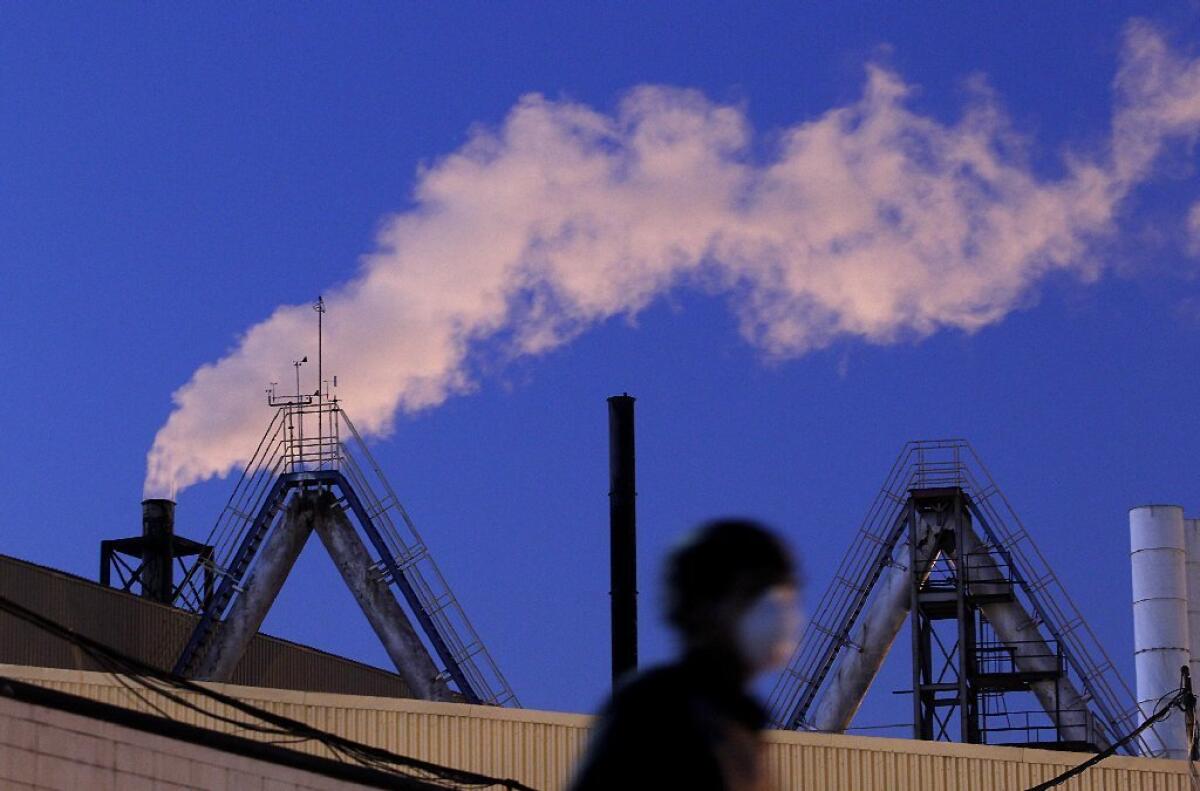Editorial: Vernon’s Exide battery plant: An environmental wake-up call

There’s no clearer sign that state environmental regulators have failed to protect public health than the warning issued this month to parents living in the shadow of the Exide battery recycling plant in Vernon: Don’t let children play in the dirt in your backyard. Tests of 39 homes and one preschool within two miles of the plant revealed that all had levels of lead in the soil that should trigger health evaluations. Lead is a neurotoxin that can cause children to develop learning disabilities and behavioral problems.
State officials believe Exide, one of the largest recyclers of lead-acid batteries in the world, is responsible for the contamination. The company has questioned whether the toxin came from the plant but has pledged to work with regulators.
In the last year, under increasing pressure from the community and elected politicians, California environmental officials have stepped up enforcement against the company. They are now trying to shut down the plant until the company can find a way to cut its emissions. That’s a hopeful sign.
But there’s never been a satisfactory answer from the Department of Toxic Substances Control and the South Coast Air Quality Management District as to why Exide has been allowed to operate for 30 years on a temporary permit, racking up repeated air pollution and hazardous waste violations. Nor has it been explained why state agencies did not work together to address the risks from Exide’s air emissions, its handling of hazardous materials and its surface water runoff when problems were revealed a decade ago.
The example of Exide must be a wake-up call to Gov. Jerry Brown and state legislators that there are fundamental flaws in how California is regulating toxic polluters. Air, water and toxics agencies too often work independently instead of cooperatively when looking at the risks from businesses handling dangerous materials. And they must be more aggressive when public health is threatened.
Local government authorities should be more aggressive as well. This month, Supervisor Gloria Molina called on the Board of Supervisors to create a strike team to assess toxic threats, which would be staffed by county agencies such as the public health department, the public works department and the fire department, as well as the district attorney. The strike team would not have new authority, nor could it overrule state regulators or force them to act if they failed to respond. But it could be valuable if it were able to bring public attention to hazardous situations and to hold regulators’ feet to the fire.
While California has made great strides in cleaning up water and air throughout the state, some residents continue to live amid dangerous pollution. Environmental agencies must take a fresh look at how they’re protecting these communities.
More to Read
A cure for the common opinion
Get thought-provoking perspectives with our weekly newsletter.
You may occasionally receive promotional content from the Los Angeles Times.










